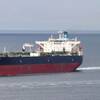MARAD Administrator RADM Buzby: “[American] mariners are a de facto layer of our national security.”
The House Transportation and Infrastructure Subcommittee on Coast Guard and Maritime Transportation held a hearing Wednesday on “The State of the U.S. Flag Maritime Industry” during which congressional and maritime leaders stressed the importance of the Jones Act. This group included:
- Congressman Duncan Hunter (R-CA), Chairman of the Subcommittee on Coast Guard and Marine Transportation
- Congressman John Garamendi (D-CA), Ranking Member of the Subcommittee on Coast Guard and Maritime Transportation
- Congressman Garret Graves (R-LA)
- Congressman Randy Weber (R-TX)
- Congressman Rick Larsen (D-WA)
- Congressman Alan Lowenthal (D-CA)
- RADM John Nadeau, Assistant Commandant for Prevention Policy for the United States Coast Guard
- RADM Mark H. Buzby, Administrator of the Maritime Administration
- Matt Woodruff, President of the American Maritime Partnership
- Matthew Paxton, President of the Shipbuilders Council of America
- Mr. Aaron Smith, President and CEO of the Offshore Marine Service Association
- Mr. Bill Van Loo, Secretary Treasurer of the Marine Engineer’s Beneficial Association
The Committee and those testifying expressed bipartisan support for the Jones Act and enforcement of the law.
Chairman Hunter said:
“In order for us to maintain the way of life as we know it as a nation that is secure and is able to project power, be it Navy power or commercial power, the Jones Act is intrinsic to that. It is the cornerstone of all of them…the absurdity to have Korean or Chinese or name your country made ships take away the entire American workforce of making ships and driving them and getting something from point A to point B in America...its absurd and I hope that we keep educating…so that people understand how [the Jones Act] is one of the cornerstones of our entire country’s national security apparatus.”
In his opening remarks, Ranking Member Garamendi stated:
“First and foremost, we cannot become complacent in our defense of the Jones Act and our efforts… to raise public awareness of the need for, and the many benefits that flow, from this long-standing maritime policy that has stood for nearly a century.”
Congressman Weber likewise noted the need to maintain a strong domestic maritime industry and the importance of the Jones Act. He stated, “We want to keep the Jones Act in place and make sure that we've got American vessels, make sure we're doing our job, make sure it's helping our economy, and make sure it's helping our national security.”
While reflecting on the role of the domestic maritime industry, particularly when responding to the needs of Puerto Rico following Hurricane Maria, Congressman Graves asserted, "[The Jones Act] isn't just about employment and the economy, it's about national security implications…It's important that we do keep this on the front burner…When I went down to Puerto Rico with Chairman Schuster, Ranking Member DeFazio and others, it was clear to me after seeing it myself and talking to folks that the real challenge was the internal infrastructure, perhaps the distribution system, within Puerto Rico that was significantly damaged rather than actually getting the cargo there. In fact, the ports were clogged with cargo.”
In addition, other members of the Subcommittee, including Congressman Larsen and Congressman Lowenthal, emphasized the significance of the domestic maritime industry for the nation’s economic, homeland and national security.
After describing the market-based challenges impacting the offshore marine service industry and how this industry is adapting, OMSA President Aaron Smith said, “The challenges that OMSA members cannot understand is why the government fails to enforce the Jones Act. More than the market downturn, this failure degrades confidence in our industry and pits U.S. vessels against those that do not have to comply with the same tax, labor, or regulatory costs.”
In an exchange between Congressman Hunter, RADM Nadeau and RADM Buzby, the homeland security impact of allowing foreign seafarers on U.S. waterways was highlighted.
Admiral Nadeau stated, “Security is very important…and that would be a different paradigm should that not all be us, U.S. mariners, U.S. citizens on board those ships.”
“[American] mariners are a de facto layer of our national security. If they see something, they will say something. They know what is normal on the waterways,” explained Admiral Buzby.
Congressman Hunter concluded, “The Jones Act makes that possible. Period.”
This exchange preceded RADM Nadeau’s later statement when he reinforced the wide-ranging benefits of the longstanding U.S cabotage law.
"The Jones Act has been in place for nearly 100 years and we see tremendous benefits of the Jones Act in terms of safety, quality, security…the mariners are our industrial base,” said Admiral Nadeau.
Sharing insight on the state of the U.S. flagged commercial fleet, Woodruff described how the Jones Act protects U.S. national and economic security.
“The Jones Act [helps] by maintaining the shipyard industrial base that is vital to national security, providing a pool of mariners who have demonstrated through the ages that they will go into harm’s way to support America’s interests and defense, and providing commercial vessels for military cargoes,” said Woodruff. “[Jones Act] vessels keep vital goods moving between American cities and energy flowing … the industry provides well-paying, family wage jobs that allow Americans to climb the ladder of economic security…we cannot have energy independence or dominance if we have to depend on foreign interests to get our domestic energy out of the ground and to its markets in America.”
Paxton detailed the value of the Jones Act for both the commercial and private markets, specifically addressing the call for the U.S. shipyard industrial base to build the 355-ship Navy of the future. "From our industry’s perspective, the Jones Act also ensures that the U.S. maintains critical shipyard infrastructure and an associated skilled workforce that can build, repair, modernize and maintain the more than 40,000 vessels of the domestic Jones Act fleet. This industrial base also ensures there is a sufficient workforce to support the construction and repair of our critical national security fleets,” said Paxton.










